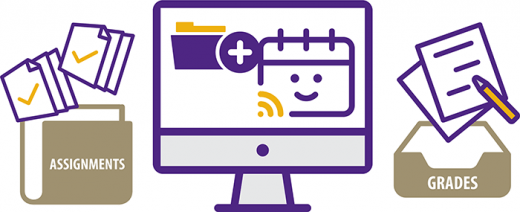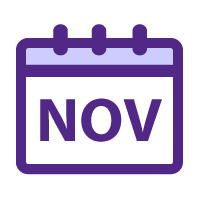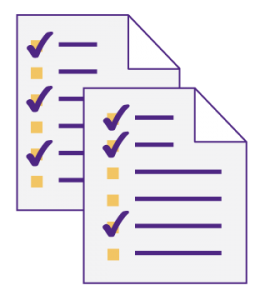Lori Goodson, Editor
Mary Hammel, Technical Editor
Category: October 2020
In the Classroom: Scott Frantz

For many of us, the last time we saw Scott Frantz, he was wearing No. 74 on the offensive line for the K-State football team. Now, he’s in his first year of teaching back in his hometown, and he took a few minutes to catch us up on his new career.
Name: Scott Frantz
Location: Lawrence Public School USD 497, Lawrence, KS
Class/content area taught: Special Education Resource Room
What are you most excited about with your new career? I’m most excited about starting a new chapter in my life. There is something refreshing about moving on, whether it be going from middle school to high school, high school to college, or college to the professional world. In every phase of your life you get to meet new, amazing people, develop new relationships, and grow as an individual. That is what I’m most excited about.
What do you enjoy most about teaching? I’ve always been a people person. I love meeting new people developing relationships. There is not better job to do that than being a teacher! I’m excited to get to know my students and do everything I can to help them reach their goals. Students are hungry for role models. Someone they can look up to. I want to be that person and help show them that they can be anything they want to be. We don’t get into this line of work to make a ton of money and have fancy things, but we get into this profession to make a difference, and that it makes it all worth it. I enjoy teaching because it is a fulfilling career.
What are some specific things you believe KSU especially helped prepare you for your new career? Kansas State did a great job of preparing me for the professional world. Playing football, I learned about hard work, teamwork, and what it takes to be successful. Being a student in the College of Education, I learned how to be an effective teacher. I thought that helping out with STEM during the summer was very beneficial to me also. I am very grateful for my coaches and teachers for getting me well prepared!
Are there specifics about your background that make teaching the perfect fit for you? I grew up in a family of educators and I loved it. My parents were always around and when I was around and we had so much fun during our summers off. Growing up in this environment always made me curious about going into the education field, but ultimately what drove me to education were the amazing relationships I made with kids with disabilities. I remember being impacted by these amazing kids throughout my entire education, and that ultimately made me want to be a special education teacher.
Suggestions/encouragement for new teachers: The ball is in your court; you can be as good or as mediocre as you want to be. There are a lot of great teachers out there, and there are a lot of not-so-great teachers out there. The difference between the two is motivation. Great teachers never let themselves forget the amazing power that they have, and this is the ability to be a positive influence and role model in their students lives. They wake up every day motivated, wanting to do everything in their power to help their students reach their goals. They go out of their way to get to know their students and develop relationships, and never give up on them. This road requires more effort and energy, but ultimately will make you a better and happier teacher.
Bonus question, thanks to the Pandemic: How has the Pandemic shaped your classroom—the environment, safety precautions, etc.? How has it affected you as a new teacher? Covid-19 has reshaped many districts across the country. My school district is moving online for the foreseeable future. This makes it very difficult for teachers. My job, as a special educator, is to help my students thrive and succeed in the classroom. Now that I am away from them, this will be much more difficult. My communication will be happening online and trying to figure out what they need at home in order to keep up and succeed. It will be a big learning curve, but we are all in the same boat!
Stay healthy as flu season begins
 Falling leaves and doorsteps decorated by bright orange pumpkins signal—among other things—that the cold and flu season has arrived! And with COVID-19, it’s more important than ever to keep yourself healthy!
Falling leaves and doorsteps decorated by bright orange pumpkins signal—among other things—that the cold and flu season has arrived! And with COVID-19, it’s more important than ever to keep yourself healthy!
Since you may find yourself surrounded by sneezes in your classroom at some point in the next few weeks, take some steps to protect yourself from germs—and keep yourself from missing a few days of school. Try to:
- Get a flu shot to limit your chances of getting sick.
- Drink plenty of water.
- Eat healthy foods.
- Wash your hands regularly.
- Get eight hours of sleep (even if that means that last set of papers has to be graded the next day).
Find a record-keeping system that works for you!
 So…maybe I’m not the BEST person to write this, but….
So…maybe I’m not the BEST person to write this, but….
Amid all the new things you’re learning—bell schedules and assembly procedures, as well as the names of 135 or so of your very favorite students and a batch of new computer passwords and codes, one important area you will need to become comfortable with is record keeping. And that’s important, whether you’re teaching virtually or face to face, or a mixture of the two.
As a new teacher, you’re probably realizing all the requirements for your new position, but good record keeping will save you plenty of headaches through the year. Absences, tardies, missing assignments, grades, and communication with students’ families and guardians are just a few of the details you’ll need to record. So let’s look at some suggestions that, hopefully, will make your daily teaching duties a little easier!
Communication Log: Communication—with families and guardians, colleagues, administrators, education leaders, and community members—is so important, and in the midst of lesson plans, activities, and classroom management, it can easily get lost.
IDEAS:
- Consider recording dates you attempted to contact (by phone or through email) parents/guardians and dates you successfully contacted parents/guardians regarding specific student concerns or successes. Make a brief note of the topic of communication and any decisions or input.
- Record dates/copies of student behavior referrals.
- Record ideas/suggestions gathered through your various communications.
- File family/guardian emails in a separate folder on your computer for easy access.
Attendance: When you’re dealing with 30 or more students, keeping track of attendance can be a daunting task! While you’ll probably have a computer program that your school uses to record students who are absent or tardy, you’ll probably want to include your own personal system, as well.
IDEAS:
- Develop a way to organize papers and other materials that absent students will need when they return.
- Try using a folder posted on a board or in a designated spot and placing any materials in it with specific students’ names on them. If you teach multiple classes, clearly label a folder for each class.
- Keep a list of students and their missing assignments. Many grading programs will generate these for you. Consider printing out two copies—a master copy for you and then a copy of each student’s missing assignments. Hand out a list of missing assignments to each student; handing these out on Fridays can be especially helpful to give them the weekend to address their missing assignments.
Grades: Keeping up with the grading and maintaining accurate grade sheets are always a concern for teachers—new and veteran teachers alike. Here are some suggestions.
IDEAS:
- Keep a basket on your desk so students will know where assignments go when they’re completed.
- Try to grade papers—and empty that basket—by the end of the day on Fridays. What doesn’t get taken care of by then probably needs to go home over the weekend. Try to always start your week with an empty assignment basket for a fresh start to your week.
- If you teach more than one class, have a folder for each class where you place assignments to be returned after they’ve been assessed.
- Group assignments and enter grades by the class, if possible. As late assignments come in, mark those students’ names off the missing assignments list.
- Just to be safe…periodically, especially if it has been a busy assignment time, print off the whole-class grade sheet and file in a secure place. If technology would fail (when you least expect it), you will have a backup.
Stay connected with your EdCat family

As you move through the school year, don’t miss a thing! Be a part of EdCATS!
We want to help beginning and early career teachers like you thrive in your career! Check out @ksuedcats for teaching tips and to stay in touch with the COE! Check out the website at coe.k-state.edu/forever-edcats.
It’s YOUR turn to be graded
You’ve given your students grades; now it’s time for you to be graded. But, just as you want all of your students to be successful, your administrator wants you to succeed as well. He or she has put time an energy in selecting you and supporting you, and the teacher evaluations are just another sign that they want you to be the best teacher you can be.
Hopefully, you have visited with your administrator about the formal evaluations. He or she can share the number of times you’ll be formally observed and the process.
Usually, you’ll have a pre-evaluation meeting, followed by the formal observation. After that, you’ll likely have a formal meeting. For this part, make sure you complete any required forms. In many districts, you’re required to provide a detailed lesson plan (and possibly a one-page, brief version), seating chart, a brief narrative regarding the class, and copies of any materials you use during the class. Include anything to help him or her “see” what’s going on in the class—and anything to simplify the process.
You’ll probably find that, if you’ve built a relationship with your students, they’ll step up during the formal observation to help you succeed. Be sure to appreciate how they jump in to respond to your questions, sit still when they need to be sitting still, etc. We’ve rarely see students (big or small) misbehave intentionally during a formal observation.
For the pre-observation and post-observation meetings, share strengths and weaknesses. A good administrator will listen to your self-evaluation and help you strengthen the areas you believe need some help. Much like you work with your students, he or she should be eager to help you succeed.
As a new teacher, you will find an administrator may visit your room anytime. (It’s even been known for a superintendent to make an impromptu visit to a classroom now and then, as well.) The best way to prepare for that is to make sure you’re ready every morning. Often, it’s best to take a few minutes at the end of the day to set up for the following day’s classes. Get your materials photocopied, organized, etc., so you don’t have to do any searching as the students arrive in your classroom the next morning.
These evaluations early in your career are extremely typical. If anything, consider it a sign of support—that your administrators want to make sure you’re doing well in your classroom and want to know if there are steps they can take to help you be successful.
After the first year, the pressure of evaluations eases up quite a bit—especially if you’ve proven you’re qualified and comfortable in the role of a classroom teacher.
Am I right, second-year teachers? Are you remembering the butterflies of that first evaluation? Be sure to email and share some of your thoughts!
Let me hear from you!
What’s up?
Why don’t you send us a photo of you at work in your classroom! Or, do you have a question about classroom procedures? A suggestion for a topic we should address in Before the Bell? Want to add your name to our mailing list? Or provide a different email for our list? At the very least, just email and say hi!
And thanks to all of those who have emailed! We love the updates!
Early-career teachers, feel free to jump in and offer suggestions to those who are following your career choice!
We’d love to hear from you, so please email us at lagoodson@k-state.edu.
Go, COE Cats!
Looking ahead…
 Don’t look now, but fall is quickly shifting into winter. Next month, we’ll offer some ideas to get you prepared as you move into the second quarter of the school year.
Don’t look now, but fall is quickly shifting into winter. Next month, we’ll offer some ideas to get you prepared as you move into the second quarter of the school year.
- Fantastic online classroom resources…from some of your favorite KSU professors
- Ways to celebrate the holidays and value your classroom’s diversity
- Our quick guide to faculty meetings
